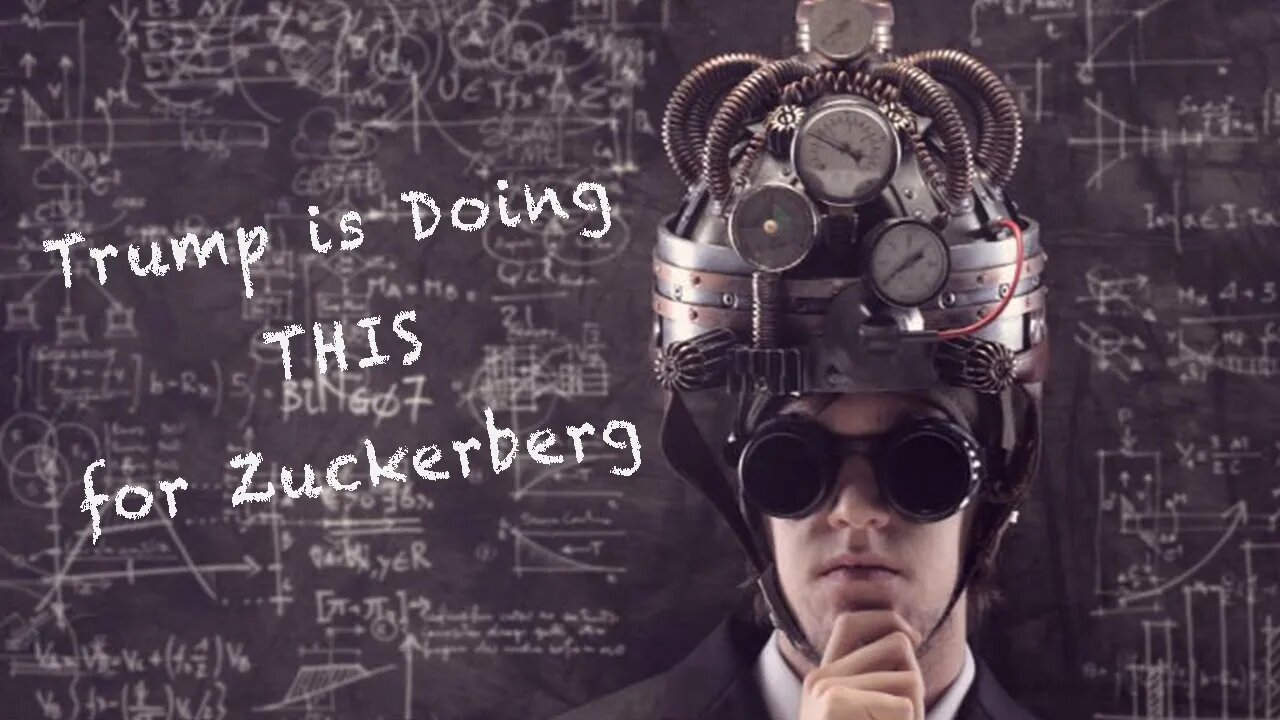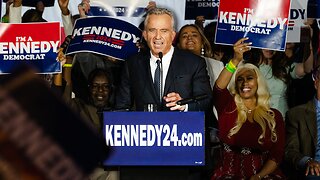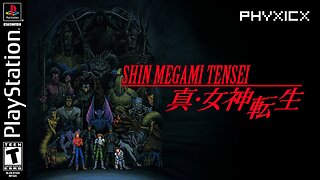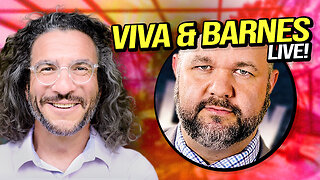Premium Only Content

ASTONISHING: Harvard Genius Reads Trump’s Mind to Explain Twitter Executive Order
Trump signed an executive order focused on keeping social media companies bias in check if they wish to legally remain a designated "platform". This video explores the mainstream media/academia's "explanation" for it while at the same time Anthony Galli injected his own explanation. You, the viewer, can decide who is closer to the truth.
(trump is doing this for zuckerberg, Explain Trump Twitter Executive Order, explain donald president trump twitter executive order, donald trump twitter executive order, donald trump executive order today, donald trump signs executive order explained, donald trump social media executive order explained)
The Atlantic article: https://www.theatlantic.com/technology/archive/2020/05/trumps-executive-order-isnt-about-twitter/612349/
In order to learn about the executive order I googled "Trump Twitter Executive Order."
This is what came up…
Every single story was written by a liberal publication. I then clicked on the first story by The Atlantic, which was written by somebody called Zeynep Tufekci. She's an associate professor at the University of North Carolina, and a faculty associate at Harvard. Impressive credentials! What did she have to say?
The Atlantic article starts with a strong emotional appeal…
As the United States enters a pandemic summer, with more than 100,000 Americans already dead, and as tear gas engulfed Minneapolis last night, following protests after yet another killing of a black man by a police officer, the president tweeted that the "shooting starts" when the "looting starts".
The tweet echoed a historic line uttered by a police chief in Miami in 1967 during the civil-rights unrest that was also widely condemned at the time.[1]
You’re free to think the president PURPOSELY echoed the words of a Miami police chief from 1967, but if Professor Tufekci was trying to be honest she would've at least included the president's defense so the reader could have been armed with the facts to reach their own conclusion…
If you despise Trump or are familiar with Civil Rights unrest in 1967 Miami then I can see why you'd assume his motives were evil/racist/glorifying-violence, but if you are more middle of the road, such as myself, then I honestly thought on first read that the president was, as he later claimed, just making a factual observation that when looting starts, shooting usually follows.
The Atlantic article continued…
Twitter hid that tweet behind a message saying that it was "glorifying violence" - a violation of the site's terms of service - though the users could still choose to view it by clicking through.[2]
Don’t you think “glorifying violence” is such a vague violation that a moderator could fit their political bias into it?
Oh, didn’t like The Joker movie. BOOM. Take down the trailer for glorifying violence!
The Atlantic article continued…
All this was an escalation of the seeming conflict between the president and Twitter: Just two days ago, the social-media company added a fact-check link to one of Donald Trump's tweets for the first time. The president responded by issuing an executive order that is getting a lot of attention, but not the right kind.[3]
Obviously, whatever Trump does will get negative attention. He could single-handedly develop a coronavirus vaccine in the Lincoln bedroom and people will say he didn't do it fast enough.
But the professor is just FACTUALLY wrong to say "but not the right kind" because, of course, there will always be a segment of the population that also gives the president positive attention no matter what.
And I personally believe the executive order was one of the president's best actions-to-date (more on this later).
The Atlantic article continued…
The president's order targets Section 230 of the Communications Decency Act, which confers immunity to internet companies for content they host but is generated by their users - something without which they could not operate as they now do. We've already seen a flood of lengthy commentaries and expert analyses of the legislative basis of the order. Legal experts have derided it as "unlawful and unenforceable." A Vice News headline worried that it could "ruin the internet." And a senior legislative counsel at the ACLU pointed out that "ironically, Donald Trump is a big beneficiary of Section 230" - because it gives him unfettered access to the public through social media. A New York Times analysis similarly said that the order could "harm one person in particular": the president.[4]
Why not include one of the many legal experts that supported the order?
Read Video @ https://www.quora.com/profile/Anthony-Galli-5
-
 9:09
9:09
Anthony Galli
1 year agoThe Truth About RFK Jr.
52 -
 LIVE
LIVE
Rallied
40 minutes agoWARZONE SOLO CHALLENGES ALL DAY
110 watching -
 27:01
27:01
TheRoyaltyAutoService
6 hours agoAnother Shop Replaced The Timing Belt & Fuel Injectors On This Honda Pilot… Now It Has No Power!
39 -
 LIVE
LIVE
GritsGG
8 hours agoRanked Crim 2! Most Wins 3390+ 🧠
298 watching -
 LIVE
LIVE
IsaiahLCarter
21 hours agoJonah O. Wheeler: In Defense of Reality || APOSTATE RADIO #026
485 watching -
 LIVE
LIVE
Cewpins
2 hours agoSmoke Sesh🔥Gaming???💨420🍃!MJ !giveaway
17 watching -
 LIVE
LIVE
Phyxicx
1 hour agoShin Megami Tensei - Part 5 - 8/13/2025 | Chaos Route | Expert Difficulty
7 watching -
 LIVE
LIVE
MattMorseTV
1 hour ago $0.60 earned🔴Gaming Sunday🔴
2,410 watching -

vivafrei
11 hours agoEp. 277: Russia Peace Talks! Trump D.C. Takeover Leads to Lawsuit! Heat Wave Lawsuit? AND MORE!
40.7K18 -
 LIVE
LIVE
Nerdrotic
3 hours ago $1.58 earnedTransient Lunar Phenomenon: Deeper into the Mysteries of the Moon | Forbidden Frontier #112
617 watching